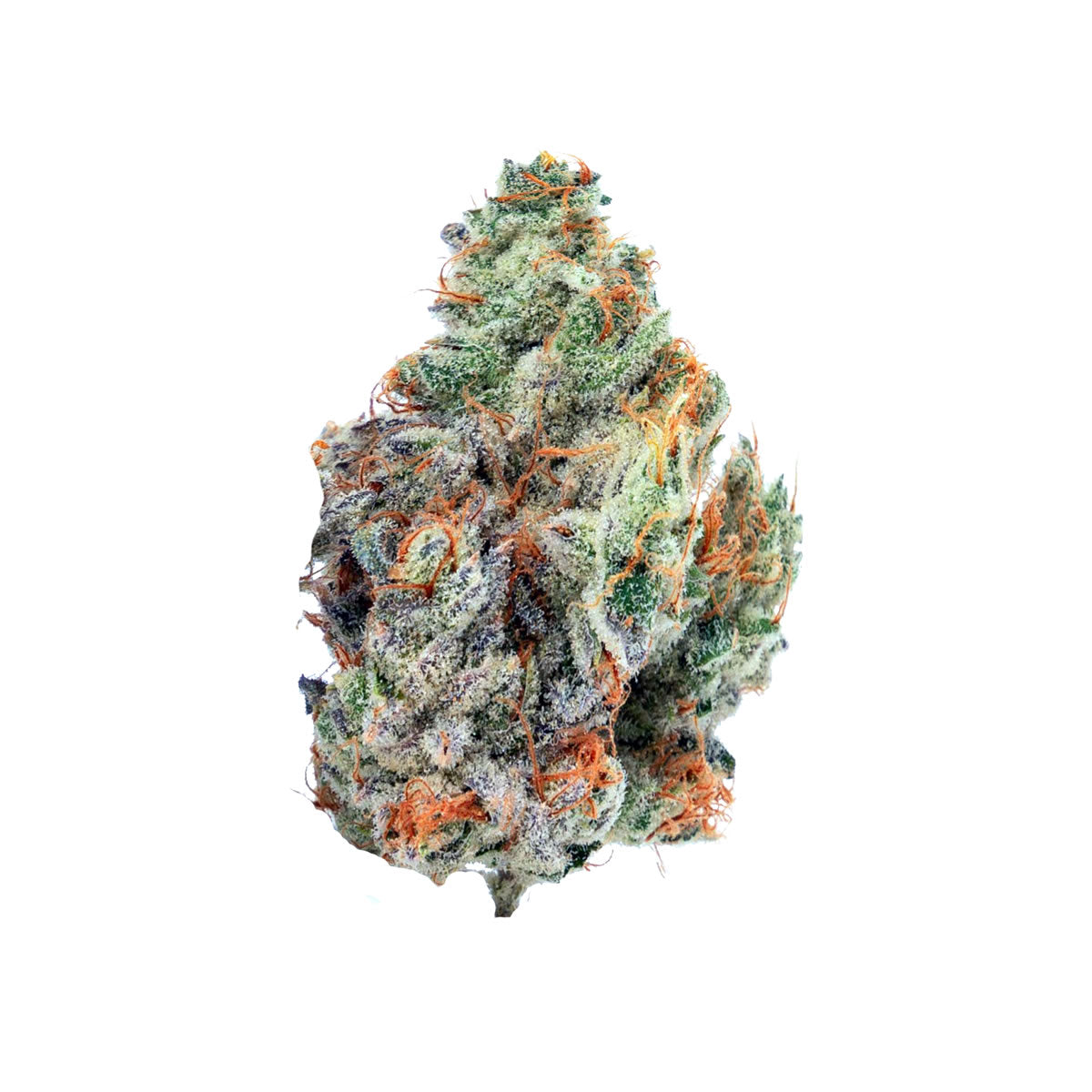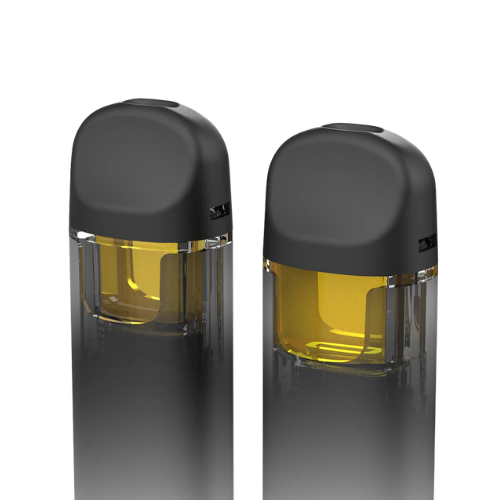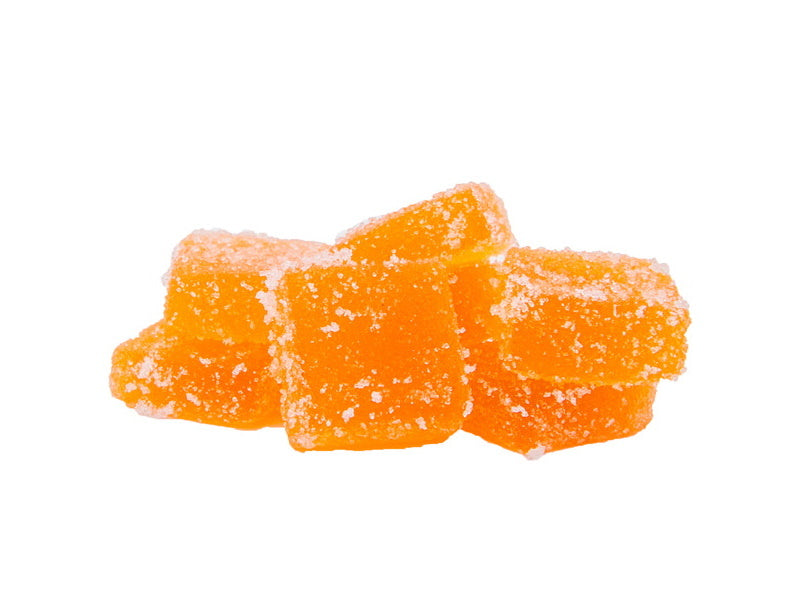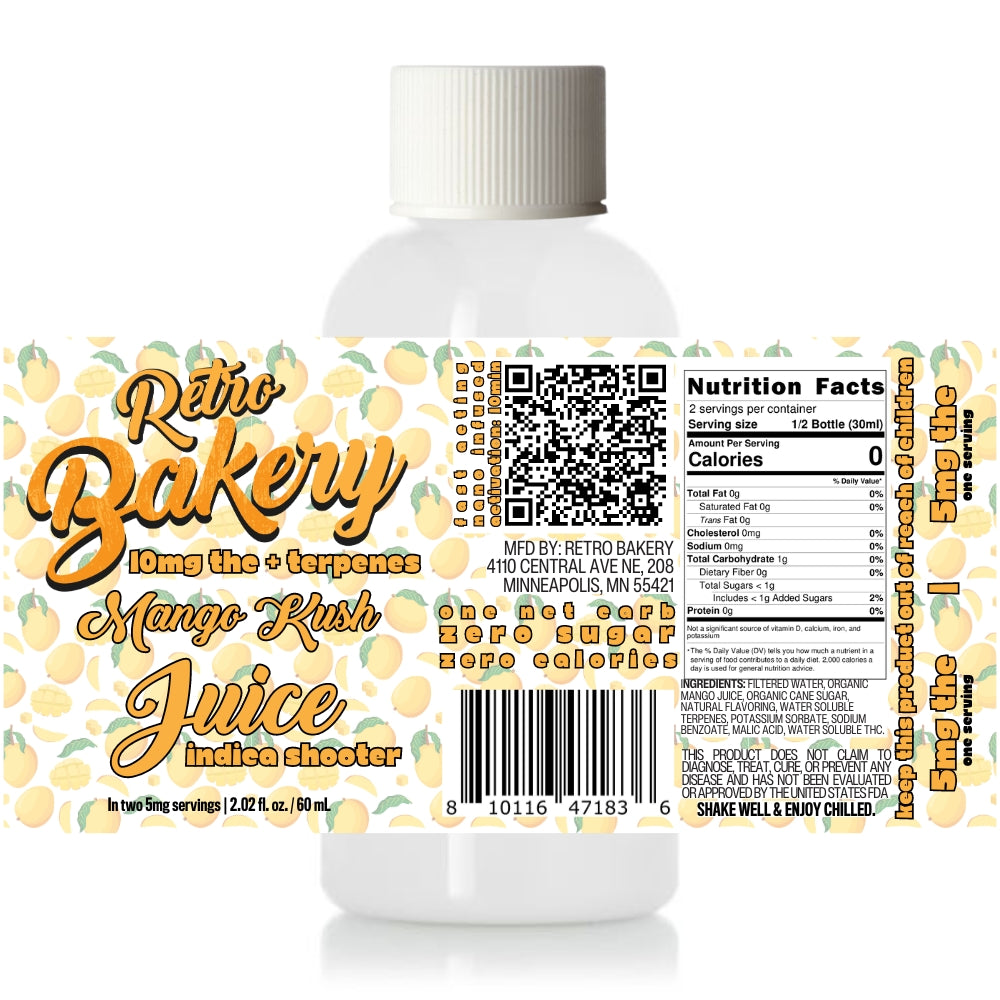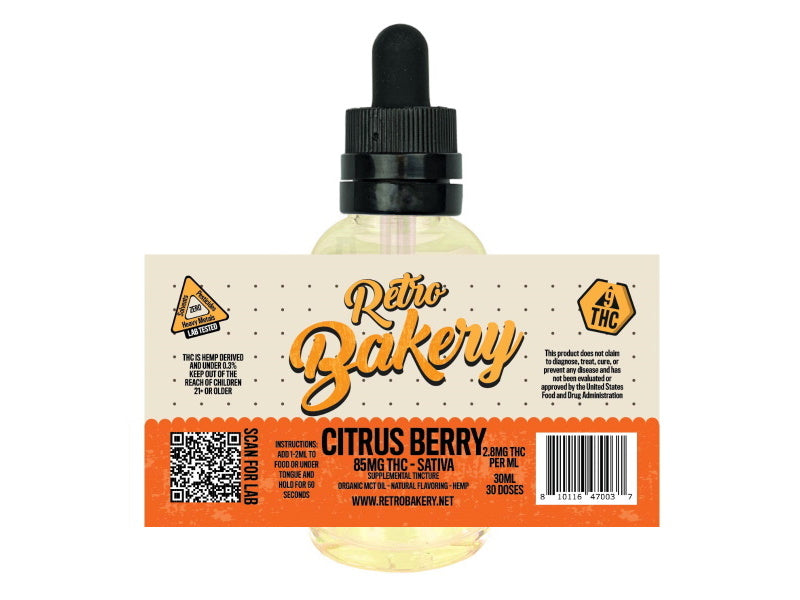THC Edibles and Exercise: The Best Products for Pre and Post-Workout Recovery
Key Takeaways
-
Timing matters: THC edibles work differently when consumed before (for focus and motivation) versus after workouts (for recovery and inflammation reduction)
-
Microdosing (2.5-5mg THC) offers performance benefits without significant impairment, while standard doses (10mg+) are better suited for deep recovery
-
Jesse Ventura "Body Breakers" products are specifically formulated with fitness enthusiasts in mind, offering precise dosing and recovery-focused formulations
-
47% of cannabis users consume it before workouts for motivation, while another 47% use it post-workout specifically for muscle relaxation
-
Product selection should be tailored to your specific fitness goals, with considerations for onset time, duration, and complementary cannabinoids
Ever noticed how many fitness enthusiasts are quietly incorporating cannabis into their workout routines? It's not just anecdotal, a surprising 14% of cannabis consumers now use it specifically to enhance their exercise regimens, according to recent industry statistics. This growing trend represents a significant shift from old stereotypes of "lazy stoners" to a nuanced understanding of how cannabinoids can support active lifestyles.
The intersection of THC and fitness is transforming from taboo to mainstream, with athletes of all levels discovering the potential benefits for both pre-workout motivation and post-exercise recovery. Whether you're curious about microdosing before your morning run or looking for better recovery after intense training, this guide will help you navigate the world of cannabis and physical activity.
Let's explore how THC edibles can be strategically incorporated into your fitness routine, with a focus on timing, dosage, and finding the products that best align with your workout goals.
Understanding THC and Exercise: Myths, Science, and Modern Fitness
Cannabis in Fitness Culture: Past to Present
The relationship between cannabis and athletics has evolved dramatically over the years. What was once considered contradictory, using cannabis while pursuing physical fitness, has become increasingly normalized. Today, approximately 37% of people use cannabis while working out, with 22% consuming before exercise and 20% after, according to Upmetrics' 2025 cannabis industry report.
This shift reflects changing perceptions about cannabis's effects on the body. Athletes from ultramarathoners to professional fighters have been vocal about integrating cannabis into their training regimens. Many report that controlled, purposeful cannabis use helps them get "in the zone" during workouts or aids in post-exercise recovery.
How Does THC Biochemically Impact Physical Activity?
THC (tetrahydrocannabinol) interacts with the body's endocannabinoid system, which plays a role in regulating pain, mood, appetite, and inflammation, all relevant to exercise performance and recovery.
When consumed, THC binds to CB1 receptors in the brain, potentially altering your perception of exertion and pain during workouts. It also interacts with CB2 receptors throughout the body, which may contribute to reduced inflammation after intense physical activity.
The distinction between microdosing and standard dosing is crucial for fitness applications:
-
Microdosing (typically 2.5-5mg of THC) can provide subtle effects that enhance focus and reduce anxiety without significant impairment.
-
Standard dosing (10mg and above) produces stronger psychoactive effects that may be better suited for post-workout recovery but could impair coordination during exercise.
The endocannabinoid system naturally produces compounds similar to those found in cannabis during exercise, the famous "runner's high" is partially attributed to this system. THC can potentially complement these natural processes when used strategically, as explored in how THC edibles can enhance your lifestyle.
The Timing Debate: Pre-Workout vs. Post-Workout THC Use
Using THC Before Exercise
Why do people reach for cannabis before hitting the gym? According to research from New Frontier Data, 47% of cannabis users consume it before workouts specifically to boost motivation. Many report that the right dose helps them:
-
Get into a flow state more easily
-
Focus on form rather than distractions
-
Reduce pre-workout anxiety
-
Make repetitive exercises more engaging
What to consider: If you're exploring THC before workouts, strain type and dosage are critical factors. Sativa or hybrid-dominant products are generally preferred for pre-workout use due to their energizing properties. More importantly, keeping the dose low (microdosing) helps avoid the coordination and motivation issues that can come with higher doses.
Best pre-workout products: Fast-acting options with precise dosing are ideal before exercise. THC-infused shots or low-dose gummies taken 30-45 minutes before your workout can provide effects that align with your training session.
THC for Post-Workout Recovery
The recovery phase is where many athletes find the most benefit from cannabis products. A striking 87% of athletes using THC believe it aids in their exercise recovery, according to the Journal of Cannabis Research. The potential benefits include:
-
Reduced muscle soreness and inflammation
-
Improved sleep quality (crucial for recovery)
-
Mental relaxation after intense exertion
-
Appetite stimulation for post-workout nutrition
Post-workout is when many athletes feel comfortable with standard doses (10mg+) since coordination and performance are no longer immediate concerns. The timing window is typically within 30 minutes to 2 hours after completing your workout.
When comparing options for recovery, many athletes find that THC provides more comprehensive relief than CBD alone, as discussed in our comparison of THC chocolate vs. CBD chocolate.
Microdosing vs. Standard Dosing: Tailoring Edible Intake for Athletic Goals
What is Microdosing and When is it Best?
Microdosing involves consuming very small amounts of THC, typically between 1-5mg, to achieve subtle effects without significant impairment. This approach has gained popularity among fitness enthusiasts for several reasons:
-
Enhanced mind-muscle connection: Low doses can heighten bodily awareness without compromising coordination
-
Reduced exercise discomfort: Slight pain-relieving effects without masking important pain signals
-
Maintained focus: Subtle mood enhancement without the mental cloudiness of higher doses
-
Shorter duration: Easier to time effects with your workout window
Microdosing is particularly effective for activities requiring precision and endurance: yoga, running, swimming, cycling, and functional training. According to industry data, approximately 45% of cannabis consumers select products based on their planned activities, showing a trend toward purposeful, activity-specific usage.
|
Activity Type |
Recommended THC Microdose |
Timing Before Activity |
Primary Benefit |
|
Cardio/Running |
2.5mg |
30-45 minutes |
Rhythm and endurance |
|
Yoga/Flexibility |
2.5-5mg |
20-30 minutes |
Mind-body connection |
|
Strength Training |
3-5mg |
40-60 minutes |
Focus and form |
|
Recovery Session |
5mg |
Immediately after |
Anti-inflammation |
Standard/Heavier Doses: When and Why?
Standard doses of THC (10mg and above) generally produce more pronounced psychoactive effects, which can be counterproductive during most forms of exercise. However, these higher doses have their place in an athlete's regimen:
-
Deep recovery days: When you're not planning to be active and want to maximize anti-inflammatory effects
-
Evening use after training: For sleep promotion and overnight recovery
-
Managing significant post-workout pain: Some athletes with injuries or chronic conditions may benefit from stronger effects
It's worth noting that tolerance varies significantly between individuals. What constitutes a "standard" dose depends on your experience with cannabis, body chemistry, and other factors. For those new to cannabis and exercise, it's advisable to start with the lowest effective dose and gradually adjust based on results, as outlined in our guide on recommended dosages for beginners.
Product Selection: Finding the Best THC Edibles for Your Fitness Routine
Types of Edibles and Benefits for Athletes
Not all THC edibles are created equal when it comes to fitness applications. The ideal product depends on your specific goals, timing needs, and personal preferences:
Gummies and chews:
-
Pros: Precise dosing, portable, discreet, available in various strengths
-
Cons: Slower onset (30-90 minutes), sugar content may not align with nutrition plans
-
Best for: Pre-planned workout enhancement when you can time consumption appropriately
Chocolates and bars:
-
Pros: Fat content may enhance THC absorption, satisfying for sweet cravings
-
Cons: Can melt in gym bags, may have less precise dosing if broken improperly
-
Best for: Post-workout recovery when you're back home and can control temperature
Drinks and shots:
-
Pros: Faster onset than solid edibles, hydrating, easier to consume post-workout
-
Cons: Less discreet, may contain sugar
-
Best for: Quick post-workout administration or pre-workout with shorter lead time
Tinctures and oils:
-
Pros: Highly customizable dosing, faster sublingual absorption, minimal calories
-
Cons: Less convenient to measure precisely in gym settings
-
Best for: Athletes who need variable dosing for different training phases
Many serious fitness enthusiasts gravitate toward more concentrated forms of cannabis. Industry data shows that 32% of consumers who favor potent cannabis products also use cannabis specifically for fitness purposes, suggesting experienced users are tailoring their consumption to performance needs.
For a deeper comparison of absorption methods, our article on chocolate vs. gummies effectiveness offers valuable insights on the differences between these popular edible formats.
Spotlight: Jesse Ventura "Body Breakers" Line
The Jesse Ventura "Body Breakers" product line represents a specialized approach to cannabis for fitness, with formulations designed specifically with athletes in mind:
Key features of the Body Breakers line:
-
Precision dosing: Consistent 5mg and 10mg THC options for predictable effects
-
Recovery-focused formulations: Combinations of cannabinoids selected for anti-inflammatory properties
-
Pre/post workout varieties: Products formulated specifically for either preparation or recovery
-
Bundle options: Coordinated product sets for comprehensive training support
The line includes:
-
Body Breakers Gummies: Available in both micro and standard doses, with strain-specific formulations for energy or recovery
-
Rapid Recovery Shots: Fast-acting liquid formulations designed for immediate post-workout consumption
-
Performance Blends: Products combining THC with complementary cannabinoids like CBD and CBG for enhanced effects
Many users report that having purpose-specific products helps them maintain more control over their cannabis consumption as it relates to exercise. You can explore the complete Body Breakers collection to find options that align with your specific fitness goals.
User Experiences: Real Talk from the Fit Cannabis Community
Athlete & Enthusiast Insights
The growing community of fitness enthusiasts using cannabis represents diverse demographics and goals. Industry research indicates that 16% of men and 12% of women now incorporate cannabis into their fitness routines, with varying approaches based on individual needs.
Customers using Jesse Ventura "Body Breakers" products report numerous practical applications:
For endurance athletes:
"The 5mg gummies have become part of my long-run ritual. I take one about 40 minutes before anything over 10 miles, and it helps me settle into a rhythm where the miles just flow by. I'm not faster, but I enjoy the process more and recover better."
For strength training:
"I've found that a small dose before lifting helps me focus on form and mind-muscle connection. I'm more deliberate with movements and less distracted by the gym environment around me."
For post-workout recovery:
"After heavy training days, a 10mg edible and a hot bath has become my go-to recovery protocol. The difference in morning soreness is noticeable compared to when I skip either component."
Common Tips, Safeguards, and Lessons Learned
Experienced users consistently emphasize several key points for those integrating cannabis into fitness:
-
Start low and progress slowly: Even athletic individuals can be sensitive to THC
-
Hydration is crucial: Cannabis can cause dry mouth, which compounds exercise-related fluid needs
-
Time your consumption carefully: Effects from edibles can last 4-8 hours, so plan accordingly
-
Have non-medicated alternatives available: For competitions or situations where you need to abstain
-
Track your results: Keep notes on dosages, timing, and effects to optimize your protocol
Many users also stress the importance of viewing cannabis as a complement to, not a replacement for, sound training principles, proper nutrition, and adequate rest.
Integration Strategies: Making Cannabis Part of a Sustainable Fitness Lifestyle
Building a Personalized Cannabis Fitness Routine
Creating an effective cannabis-fitness integration requires thoughtful planning. Here's a step-by-step approach to developing your protocol:
-
Establish baseline fitness without cannabis: Understand your normal performance before adding variables
-
Define your goals: Are you focusing on performance, enjoyment, recovery, or a combination?
-
Start with post-workout only: This minimizes risks while you learn how your body responds
-
Progress to pre-workout trials: Begin with the lowest effective dose during lower-intensity sessions
-
Document everything: Track dosage, timing, workout performance, recovery quality, and subjective experience
-
Adjust incrementally: Make small changes to find your optimal protocol
Remember that nearly half (45%) of cannabis consumers select products based on their planned activities, reinforcing the importance of a tailored approach rather than one-size-fits-all consumption.
Maximizing Benefits while Minimizing Risks
While integrating THC into fitness can offer benefits, responsible use requires awareness of potential drawbacks:
-
Performance impairment: Higher doses can affect coordination and reaction time
-
Cardiovascular effects: THC can temporarily increase heart rate, which combines with exercise-induced increases
-
Respiratory considerations: If using inhalation methods (not recommended for exercise)
-
Legal and testing implications: For competitive athletes subject to drug testing
-
Dependency concerns: Maintaining a healthy relationship with both cannabis and exercise
For those seeking high-quality edibles with consistent effects, our hemp-derived THC chocolate bars provide reliable options with transparent ingredients and testing.
Frequently Asked Questions and Emerging Trends
How soon should I take an edible before working out?
The detailed answer: The optimal timing depends on your metabolism, whether you've eaten recently, and the specific product formulation. Start with longer lead times (60+ minutes) and adjust based on your experience. Some athletes prefer taking edibles immediately after their previous meal to ensure consistent absorption patterns.
What are the best edibles for athletes prone to inflammation?
Look for products that combine THC with other anti-inflammatory cannabinoids like CBD and CBG. Full-spectrum or "entourage effect" products often provide better anti-inflammatory action than THC alone. The Jesse Ventura Body Breakers line was developed with inflammation reduction in mind, particularly for post-workout recovery.
Can cannabis replace other recovery methods?
No, cannabis should complement, not replace, established recovery practices. The most successful athletes use THC as part of a comprehensive approach that includes proper nutrition, hydration, stretching, mobility work, and adequate sleep. Cannabis may enhance these practices but isn't a substitute for them.
What's the difference between using cannabis for recovery versus performance?
Performance applications typically involve microdosing before activity to enhance focus, reduce anxiety, and potentially increase enjoyment. Recovery applications often use standard doses after exercise to reduce inflammation, promote relaxation, and improve sleep quality. The timing, dosage, and product selection differ considerably between these two approaches.
What's Next? The Future of THC Edibles in Fitness
The cannabis-fitness space is evolving rapidly, with several emerging trends:
-
Nano-emulsification technology: Creating faster-acting, more predictable edibles
-
Cannabinoid-specific formulations: Products targeting particular aspects of performance or recovery
-
Personalized regimens: App-based tracking and recommendations based on individual responses
-
Integration with wearable fitness technology: Correlating cannabis use with performance metrics
-
Sport-specific products: Formulations designed for particular activities like running, yoga, or recovery
As research expands and stigma diminishes, expect to see more sophisticated products and approaches to cannabis in fitness, with greater emphasis on evidence-based protocols and personalized recommendations.
Conclusion
The strategic use of THC edibles for exercise represents a significant evolution in both cannabis and fitness cultures. From pre-workout motivation to post-exercise recovery, thoughtfully selected products and protocols can enhance your physical activity experience when used responsibly.
The key takeaways for anyone exploring this intersection:
-
Timing and dosage are crucial: Low doses (2.5-5mg) typically work best for pre-workout, while higher doses (10mg+) are better suited for recovery
-
Product selection should match your goals: Choose from gummies, chocolates, drinks, or tinctures based on your specific needs
-
Individual response varies significantly: Your own experimentation, starting conservatively, will determine your optimal protocol
-
Integration requires thoughtful planning: Track your results and adjust systematically
For fitness enthusiasts looking to explore purpose-designed cannabis products, the Jesse Ventura "Body Breakers" line offers formulations specifically created with active lifestyles in mind. Whether you're seeking improved recovery, enhanced focus, or simply a more enjoyable workout experience, these products provide precisely dosed options for your fitness journey.
Have questions about which products might best support your specific training regimen? Reach out through our Contact Us page for personalized recommendations based on your fitness goals and cannabis experience level.


